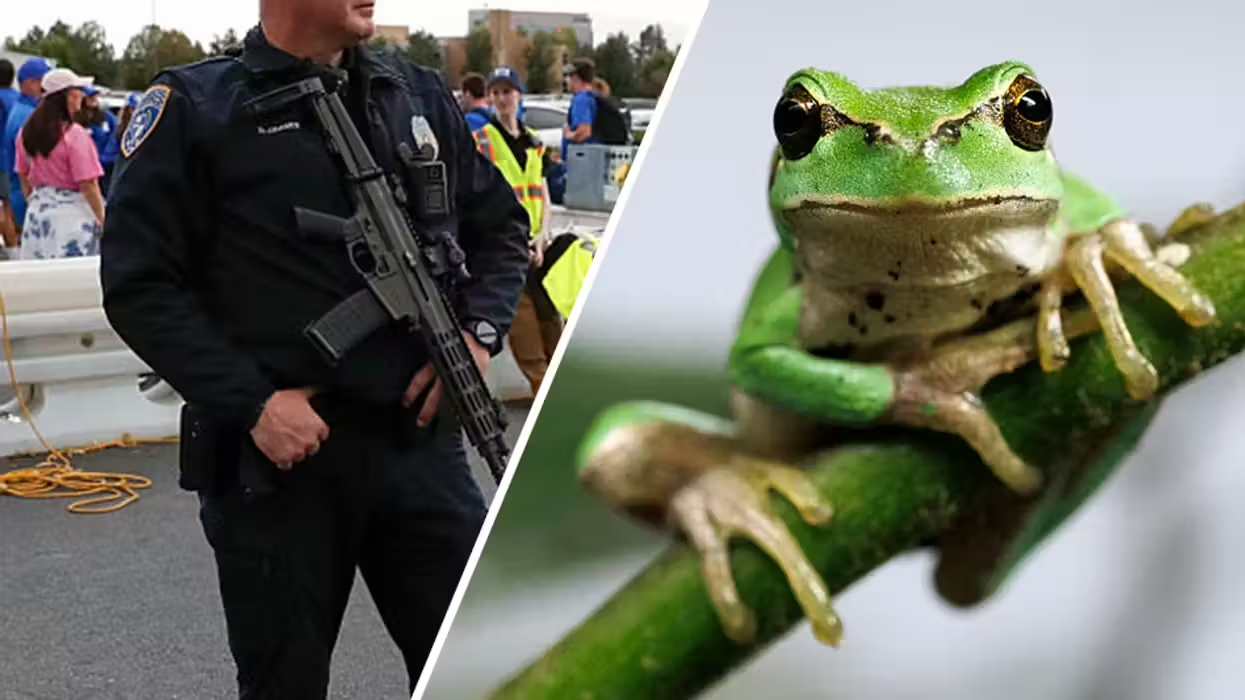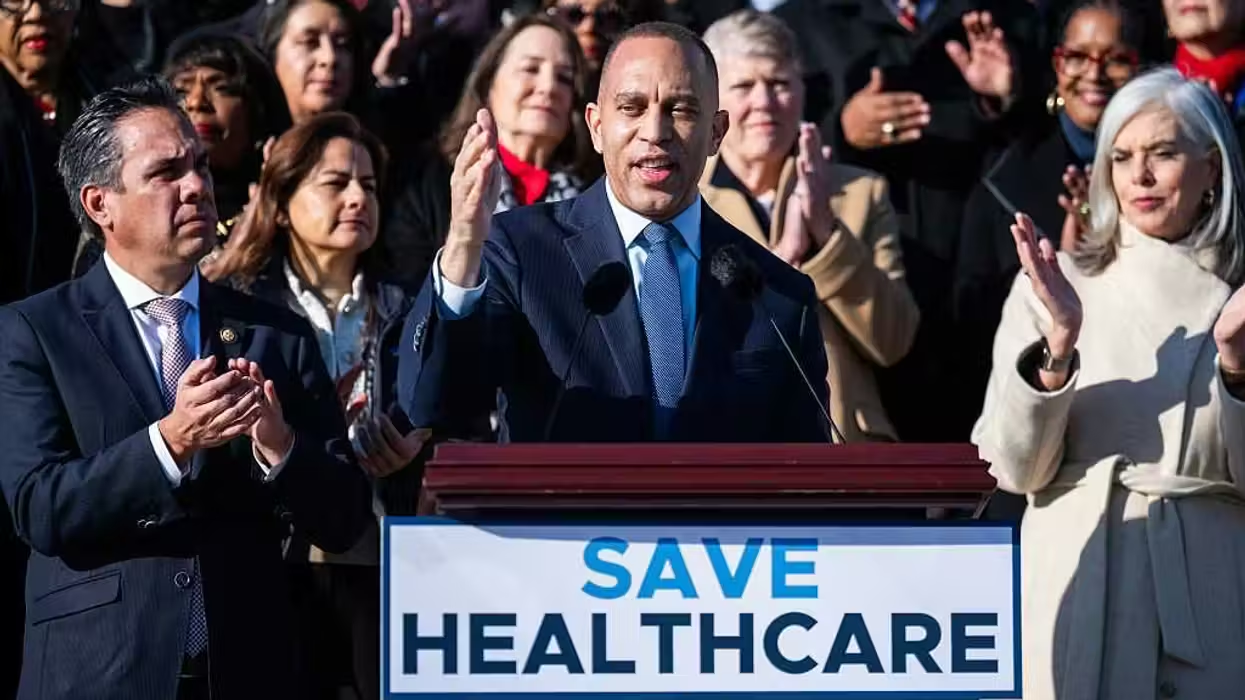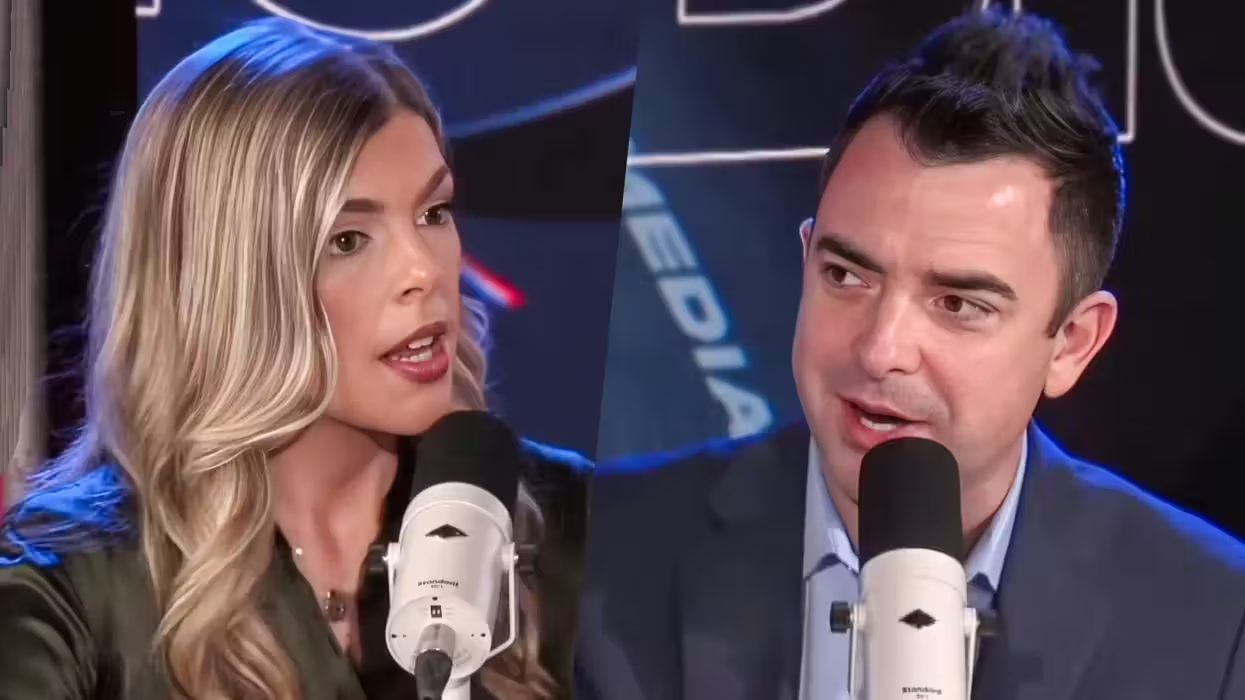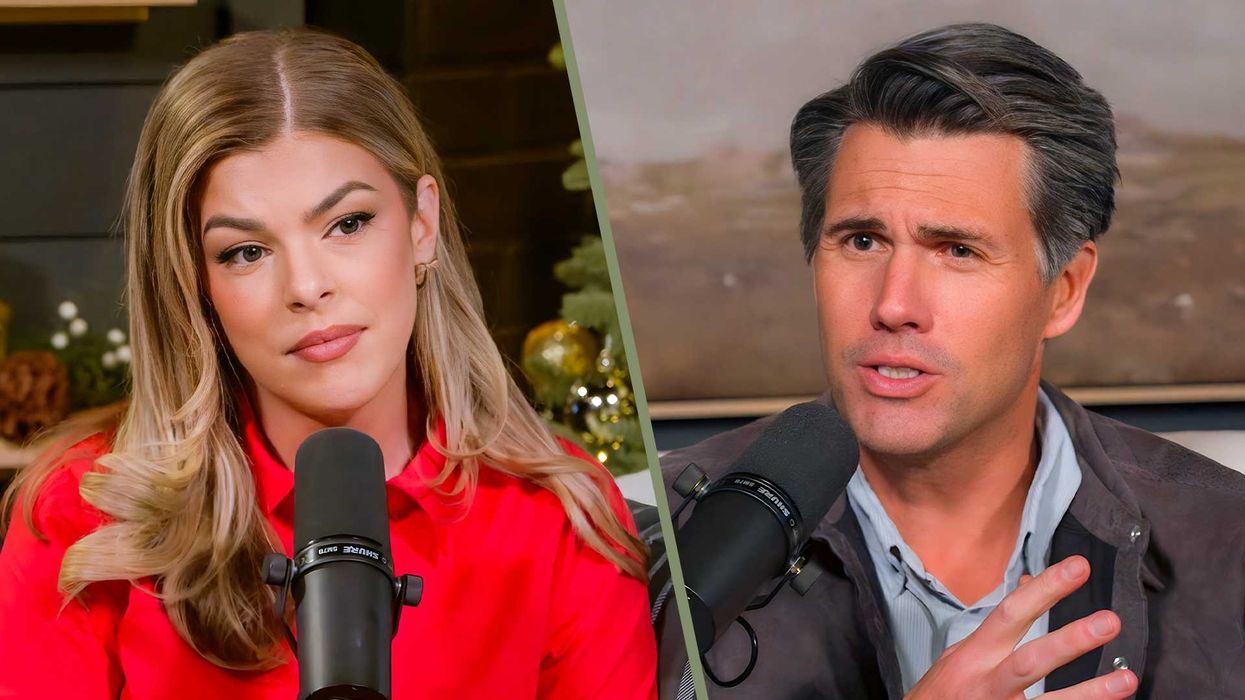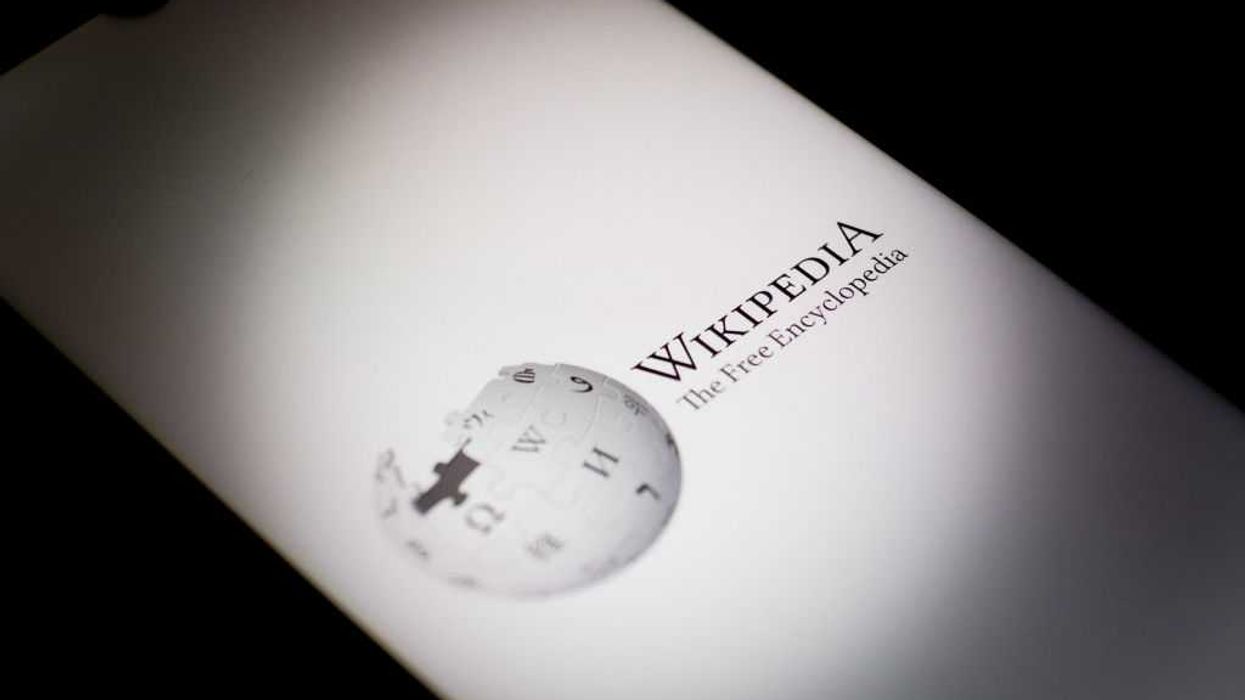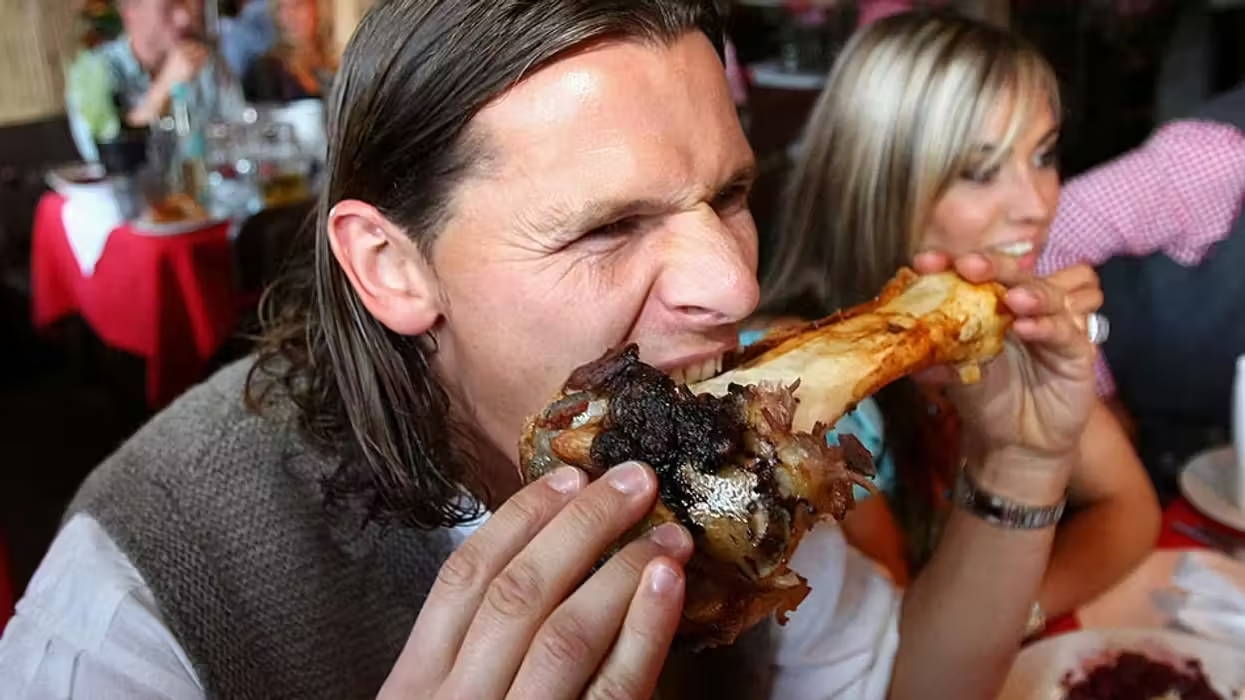
© 2026 Blaze Media LLC. All rights reserved.
What role Jorge Mario Bergoglio, Pope Francis I, will play in renewing America’s national Catholic soul remains to be seen.
 VATICAN CITY, VATICAN - MARCH 13: Newly elected Pope Francis I waves to the waiting crowd from the central balcony of St Peter's Basilica on March 13, 2013 in Vatican City, Vatican. Argentinian Cardinal Jorge Mario Bergoglio was elected as the 266th Pontiff and will lead the world's 1.2 billion Catholics. (Credit: Getty Images)
VATICAN CITY, VATICAN - MARCH 13: Newly elected Pope Francis I waves to the waiting crowd from the central balcony of St Peter's Basilica on March 13, 2013 in Vatican City, Vatican. Argentinian Cardinal Jorge Mario Bergoglio was elected as the 266th Pontiff and will lead the world's 1.2 billion Catholics. (Credit: Getty Images)
With the stunning announcement out of the Vatican yesterday that the conclave had chosen its next Pope from Latin America, all eyes were on the slight, bespectacled, kind cardinal from Argentina. Who was Jorge Mario Bergoglio? What kind of Pope would he be? Was he a Pope in the mold of Benedict XVI? Or was he more in line with the Pope who appointed him to the College of Cardinals, John Paul II?
But for Western audiences, and Americans in particular, the politics of the new Pope are top of mind. And his new charge to lead the world’s Catholics opens up fascinating possibilities for the future of Catholicism in the United States.
American Catholics have been struggling with an identity crisis in the past two decades, reconciling their politics with their faith in surprising and – to many Catholic leaders – disappointing ways. Catholics have moved leftward on social issues, voting twice for a president who arguably has the most liberal and extreme positions on right-to-life issues, the foundation of Catholic teachings, ever elected to the office.
A booming Latino population has also aligned electorally with Democrats in presidential elections, a trend that Republicans are acutely aware of and trying to reverse.
For decades Republicans have asserted that Hispanics were a winnable demographic because they are largely Catholic, and thus socially conservative. The numbers, stubbornly for the GOP, have not borne that out.
There’s cause for both optimism and cynicism in the expectation that Pope Francis will influence the country’s Hispanic and Latino Catholics in their political evolution.
But first, the facts.
Bergoglio is doctrinally conservative and, not surprisingly, strict in his orthodoxy on social issues like abortion and gay marriage.
He’s described the pro-choice movement as a “culture of death,” and opposed the distribution of contraceptives in Argentina.
About gay marriage, he was just as blunt:
“Let’s not be naïve. We’re not talking about a simple political battle. It is a destructive pretension against the plan of God. We are not talking about a mere bill, but rather a machination of the Father of Lies that seeks to confuse and deceive the children of God.”
He argued that adoption by same-sex couples was a form of discrimination against children, a position that earned some scolding from the Argentine president Cristina Fernandez de Kirchner, who accused him of harkening back to “medieval times and the Inquisition.”
If there were any hopes that the new pope was somehow going to coax the Catholic Church toward a liberal softening on these issues, Pope Francis will likely disappoint.
How this will square with Hispanic Catholics is a mixed bag. According to 2007 Pew research, Hispanic Catholics are 12% more likely than white, non-Hispanic Catholics to be pro-life, but 4% less likely to oppose same-sex marriage.
As J.J. Ziegler detailed in Catholic World Report in 2011, as Hispanic Catholics assimilate into American culture, they become markedly less pro-life. Hispanic Catholics who say that abortion should be illegal go from a majority to a minority in the span of one generation.
And more recent research shows that, like white, non-Hispanic demographics, the number of Hispanics who identify as Catholic is declining. According to a February Gallup poll, self-identification has dropped from 58% to 54% between 2008 and 2012. They are also less religious than their Hispanic Protestant counterparts.
But as Elizabeth Dias outlined in Time recently, the demographic shift is mirrored in Latin America, where the number of Catholic Hispanics has dropped 11% from 1996 to 2010, while the number of evangelicals has risen 9%.
There are nuanced and important reasons why Latinos and Hispanics in the United States are becoming less Catholic, not easily explained or accounted for by doctrinal impulses alone. Some of it is cultural, some has to do with language barriers. But nonetheless, all this would seem to indicate that Hispanic Catholics in the United States are becoming more socially liberal.
But Hispanics are nevertheless crucial to Catholicism in this country and elsewhere. As Dias points out, nearly half of all Catholics under 40 in the US are Hispanic, and the top two Catholic countries in the world are Hispanic ones – Brazil and Mexico.
Which brings us to Bergoglio. With 480 million Catholics in Latin America alone, his appointment signals the enduring influence of Latinos the world over on the Church. And for Hispanics and Latinos in the United States, Bergoglio potentially brings a highly personalized and deeply-felt sense of pride in their Catholic faith, which may inject a renewed enthusiasm and vigor into a religious and ethnic demographic that has often times felt like outsiders in both their country and their church.
Politically, this could, again, mean one of two things. The looming figure of Pope Francis brings Hispanic Catholics in the United States toward him on social issues like abortion and marriage, helping to reform Catholicism back to its traditional orthodoxy. Or, Bergoglio’s staunch positions strike a discordant and anachronistic tone with Hispanic Catholics who have already evolved leftward, pushing them further away from the church, and further away from conservatism.
The final wrench in the equation is the new Pope’s affinity for the social justice aspects of Catholic teaching, which ascribe greater significance to the role of government in adjudicating and responding to societal injustices and economic inequality. How he decides to invoke social justice will play an important role in determining how Hispanic Catholics – two groups that have grown increasingly comfortable with that idea – respond politically in the coming years.
There are, however, plenty of Hispanic Catholic leaders who have thoughtfully tried to address waning influence of the Church on Hispanics here in America. And they’re presumably hoping the election of a Latin American Pope will help guide their followers back to founding principles.
Archbishop Jose Gomez of Los Angeles, in speaking to Loyola Marymount University in 2011, delivered a clarion call to all Catholics that they remember the role of Hispanic Catholics in the founding of the country (as recounted by Ziegler):
“And in the face of widespread religious indifferentism and elite disdain for religion, I believe it is more necessary than ever that we recover the spiritual legacy of our country’s Catholic ‘founders.’ America needs our Hispanic Catholic witness for the renewal of her national soul. To the beautiful Puritan idea of America as the ‘city upon a hill,’ we need to propose in our evangelization a beautiful Hispanic-Catholic vision of America as El Camino Real, the King’s Highway.”
What role Jorge Mario Bergoglio, Pope Francis I, will play in renewing America’s national Catholic soul remains to be seen.
More Contributions From TheBlaze:
Want to leave a tip?
We answer to you. Help keep our content free of advertisers and big tech censorship by leaving a tip today.
Want to join the conversation?
Already a subscriber?
more stories
Sign up for the Blaze newsletter
By signing up, you agree to our Privacy Policy and Terms of Use, and agree to receive content that may sometimes include advertisements. You may opt out at any time.
Related Content
© 2026 Blaze Media LLC. All rights reserved.
Get the stories that matter most delivered directly to your inbox.
By signing up, you agree to our Privacy Policy and Terms of Use, and agree to receive content that may sometimes include advertisements. You may opt out at any time.

